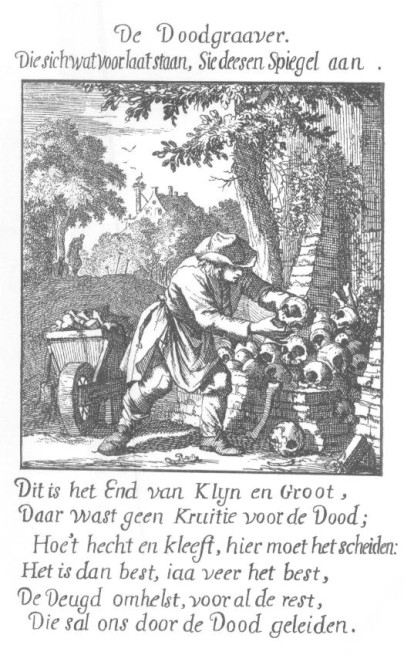
Doodgraver, print by Jan and Casper Luyken, 1694. Credits: Picturing the past
The term doodgraver literally means ‘dead digger.’ It is the person who digs the graves for the dead.
In larger towns, this was a full-time occupation. In small towns, the church sometimes hired poor people to dig the graves, making them work for their allowance.
A grave digger was not only supposed to dig the graves but also to collect any bones that would surface before the dogs could get to them. These bones would often be stored in a ‘knekelhuisje’ [bone house] in the corner of the cemetery, and reburied in a communal plot every once in a while.


Out of curiousity, is the “k” and the “n” pronounced in the word ‘knekelhuisje’? In English we wouldn’t pronounce the “k”, but centuries ago we would have.